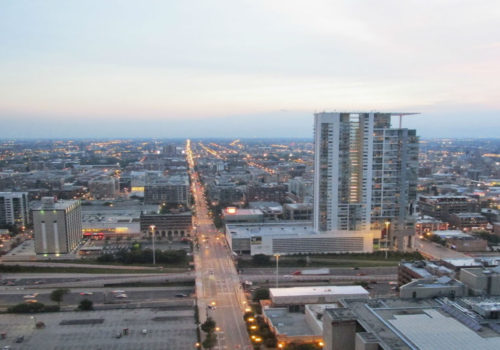“Difficulties mastered are opportunities won.” – Winston Churchill
First, the good news: Economic growth in sub-Saharan Africa is still on track to outpace the global average over the next three years, according to the World Bank, with an increase in investment likely to boost the continent’s growth to more than 5%. As a bit of context, Africa maintained an average growth rate of 4% in 2013 compared to 3% for the global economy which underscores the continent’s resilience to global and regional headwinds.
“You do things when the opportunities come along. I’ve had periods in my life when I’ve had a bundle of ideas come along, and I’ve had long dry spells. If I get an idea next week, I’ll do something. If not, I won’t do a damn thing.” – Warren Buffett
The not-so good news is that there are challenges to doing business in Africa. This post explores some of those challenges.
“I run on the road, long before I dance under the lights.” – Muhammad Ali
1. Starting the Business
Starting a business in Africa is not expensive in nominal terms. The total cost of the startup procedures and the minimum capital requirements add up to approximately US$2,350 according 2014 figures from the World Bank. This is less than startup costs in East Asia or Eastern Europe and Central Asia, where starting a business runs around US$3,700.20. However, if we take into account the average income per capita, then establishing a company in Africa becomes quite expensive. The total cost rises to 135 percent of annual income—more than double the cost in all other regions. For example, in South Asia and in Latin America-and-the Caribbean, it costs around US$350 and US$2,200, respectively, to start a business.
2. Dealing with Construction Permits
The cost of dealing with construction permits can be unpredictable to say the least. Good construction regulation matters for public safety. It also matters for the health of the building sector and the economy as a whole. According to a recent study, the construction industry accounts on average for 6.5% of GDP in OECD economies. The building sector is Europe’s largest industrial employer, accounting for about 7% of employment. In the European Union, the United States and Japan combined, more than 40 million people work in construction. It is estimated that for every 10 jobs directly related to a construction project, another 8 jobs may be created in the local economy. Small domestic firms account for most of the sector’s output and most of its jobs.
Sound regulation of construction helps protect the public from faulty building practices. Besides enhancing public safety, well-functioning building permitting and inspection systems can also strengthen property rights and contribute to the process of capital formation. But if procedures are too complicated or costly, builders tend to proceed without a permit. By some estimates 60–80% of building projects in developing economies are undertaken without the proper permits and approvals. And because the construction permitting process generally involves licensing requirements from several different agencies, those using the process are exposed to different bureaucracies, which creates opportunities for rent seeking.
Where informal construction is rampant, the public can suffer. Take the case of Nigeria, which lacks an approved building code that sets the standards for construction. Many of the buildings erected do not comply with proper safety standards. Without clear rules, enforcing even basic standards is a daunting task. Structural incidents have multiplied. According to the Nigerian Institute of Building, 84 buildings collapsed in the past 20 years, killing more than 400 people.
Overly complicated construction rules also can increase opportunities for corruption. Analysis of World Bank Enterprise Survey data shows that the share of firms expecting to give gifts in exchange for construction approvals is correlated with the level of complexity and cost of Dealing with Construction Permits.
3. Having Reliable Electricity
Getting electricity is a big concern for businesses in Africa. For example, in South Africa it can take up to 226 days involving a string of lengthy procedures. Eskom, an electricity public utility, can take 60 days to provide an estimate after the application has been received, and 165 days to complete external connection works.
4. Registering Property
At one time, land seemed an almost inexhaustible asset in Africa, but population growth and market development have created mounting competition for land resources, especially close to towns and cities, and in the productive, high-value agricultural areas. Customary land management is also under pressure in many places. With such a high proportion of land being unregistered, the risks of dispossession for the poor majority from a major land-grab are high. Historical experience suggests that in the evolution of oral to formal, written rights, certain interests tend to lose out, typically the poor holders of secondary rights.
5. Accessing Capital and Credit
So is the cost of capital really higher in Africa? A cross-regional analysis of finance cost (such as prime rate – what banks charge when lending to their best customers) shows clearly that, if they are located in Africa, even the best customers are charged a much higher interest rate. More specifically, firms in Africa pay around 7 percent more in interest rates than firms in East Asia and in South Asia. In Eastern Europe and Central Asia, the difference is 4 percent. In the main competitors such as India,Thailand,Vietnam, and China, borrowing funds is up to 40–70 percent cheaper than in the continent of Africa.
A lack of access to credit for farmers and other small businesses is widespread in most developing countries. Yet in Africa, a majority of the population farms or resides in rural areas. Although they are central to their countries’ economic advancement, small farms and agribusinesses often face a devastating impediment to growth: a lack of access to financing, literally and figuratively. Banks (mostly located in urban areas) are hesitant to lend to sectors they perceive as being too risky.
One inspiring response to this challenge has taken shape in the form of USAID’s Development Credit Authority which has established risk-sharing agreements with local banks in developing countries around the world. The agreements state that USAID will share risk on loans made by these banks if they increase their lending to sectors that require financing and are central to local USAID priorities. Put another way, USAID will partially reimburse banks—typically 50 percent—for defaults on these loans. As a result, banks are able to boost their lending and expand into new sectors that they traditionally perceived as being too risky.
6. Paying (and not paying) Taxes
On one hand, there is the issue of tax evasion; on the other hand, there’s the issue of over-taxation.
A study conducted in 2008 by Raymond Baker, estimates that developing countries like Ghana loses over $22.4 million in tax revenue annually to tax evasion. Also, a similar study conducted by Internal Revenue Service of Ghana revealed that about 1.5 million of 7 million income earners pay their tax which indicates that 79% of total income earners evade tax.
Corporate tax rates vary considerably across regions, but Africa appears to be the least tax-friendly location to corporations. With a rate of approximately 30 percent, African firms seem to be among the most highly taxed firms in the world.
Africa is the location with the highest property tax (except for South Asia—with a rate of 21 percent). Firms on the continent have to pay, on average, 7.5 percent of the value of the property in taxes. This is much higher than the 4.7 percent and 2.7 percent firms pay in East Asia and Latin America and the Caribbean, respectively.
Africa applies one of the highest average rates at 16 percent (second only to Eastern Europe and Central Asia, with 19 percent), while VAT in all other regions amounts to 11–14 percent. A value-added tax (VAT) or also General Sales tax (GST) is a form of consumption tax. From the perspective of the buyer, it is a tax on the purchase price.
7. Trading Across Borders
From June 2011 to June 2012 the Doing Business report recorded 22 reforms making it easier to trade across borders. Among the 10 economies making the most progress, 4 are in Sub-Saharan Africa. The most common feature of trade facilitation reforms in the past 8 years was the introduction or improvement of electronic submission and processing. Economies in Latin America and the Caribbean have made the biggest reductions in the time to trade across borders since 2005. Those in the Middle East and North Africa have made the biggest reductions in the documents required to export and import.
8. Enforcing Contracts
Trial and judgement can take over 500 days when enforcing contracts in South Africa, and the cost of an attorney and court fees can make the procedure an expensive ordeal. The challenge here can be summed up in three words: bribery and corruption.
9. Resolving Insolvency
In too many parts of the continent of Africa, it takes too long (two-plus years on average) to resolve insolvency with a recovery rate of 35.4%. Insolvency occurs when an individual or a firm is unable to meet its financial obligations. Accounting insolvency happens when total liabilities exceed total assets (negative net worth). Cash-flow insolvency involves a lack of liquidity to pay debts as they fall due. Processing insolvency more efficiently is directly proportional to promoting a better business environment.
10. Embracing the Different Cultures
Some interesting facts:
– Africa is a continent with a very high linguistic diversity, there are an estimated 1500-2000 African languages.
– Africa is the second most populous continent with about 1.1 billion people or 16% of the world’s population. Over 50% of Africans are under the age of 25.
– The continent’s population will more than double to 2.3 billion people by 2050.
11. Finding Skilled Labor
Most African countries have abundant labor but finding skilled workers can be difficult. Accenture notes that where highly educated people are available, they tend to lack practical management experience. Although employing expatriates is an option, this is not always the best solution. Expatriate personnel might find the living conditions in many African countries difficult. Employing foreign workers also slows down the skills transfer process and creates a “key person dependency” issue. Language barriers in certain African countries can also be a problem for expatriates.
12. Understanding Local Consumers
Companies and investors must ensure that they understand the values, needs and behavior patterns of local consumers. Accenture’s research reveals that low-income markets often have unreliable sources of income. Erratic cash flow, for example, affects packaging strategy. “Some consumers tend to purchase in smaller quantities, while others prefer to purchase in extra-large sizes when they have the money, thus avoiding costly travel to the retail outlet,” says Accenture.
13. Going to Work
The commute to and from work can literally be an epic adventure in many parts of Africa. Transportation is a perpetual problem in Africa. Potholed roads and missing rail links get in the way of daily productivity and annual economic growth. In 2013, intra-regional trade accounted for just 13% of total commerce, compared with 53% in emerging Asia. Landlocked countries suffer the most. Transportation costs can make up 50-75% of the retail price of goods in Malawi, Rwanda and Uganda. Shipping a car from China to Tanzania on the Indian Ocean coast costs $4,000, but getting it from there to nearby Uganda can cost another $5,000.
14. Doing Your Work
It can be challenging to first find suitable office or retail space in many African countries, especially outside of the main urban centers. Utility and municipal services can also be unreliable. Small and large businesses are often forced to supply their own primary or back-up infrastructure such as running water. When the right work space is located, noise pollution can be a problem, especially inside of the main urban centers. One good development is that more countries are setting noise standards in accordance with WHO guidelines. For example in Ethiopia, the loudest permitted noise for residential areas is 55 decibels during the day and 45 decibels at night. For businesses, the limits are 65 decibels and 55 decibel, respectively, while 75 decibels is set for industrial areas, during the day and night. (Decibels is a scientific measurement of intensity levels of a sound on human hearings).
15. Feeling Safe at Work
Providing a safe environment where firms can conduct their business is a key function of any state. And yet, around the world, as much as 15 percent of firms report losses due to crime. In spite of this, a much higher share of firms (almost 60 percent) protect themselves from theft by using protection services, which adds to the cost of doing business. Interestingly, 16 percent of African firms report losses due to crime, on par with Eastern Europe and Central Asia and well above all other regions, but over half of the African firms employ private security services. Consequently, African firms spend a nontrivial amount on security services—equal to over half a percentage point of sales, which is considerably higher than East Asia or South Asia.
16. Doubting Your Business Plan
Of all the challenges discussed, this one in particular is the most difficult. Notably, it has less to do with Africa. The great news is that working through the other 15 aforementioned challenges will put you in the best position to turn doubts into deliverables.
Sources:
OECD Journal: Competition Law and Policy 10 (1): 156–57
PricewaterhouseCoopers. 2005. “Economic Impact of Accelerating Permit Processes on Local Development and Government Revenues.” Report prepared for the American Institute of Architects, Washington, DC
World Bank Group. 2013-2014. Good Practices for Construction Regulation and Enforcement Reform: Guidelines for Reformers. Investment Climate, Washington, DC.
Deloitte on Africa Banking regulatory environment and supervision in Africa, 2012
Allafrica: Noise Pollution Regulations





